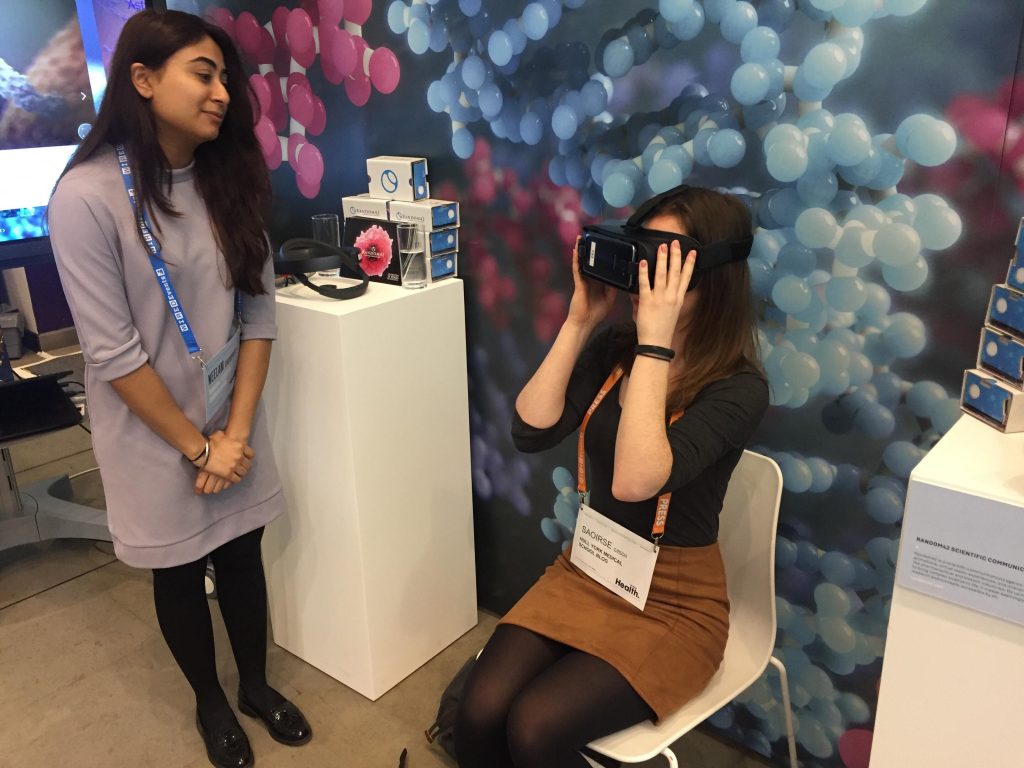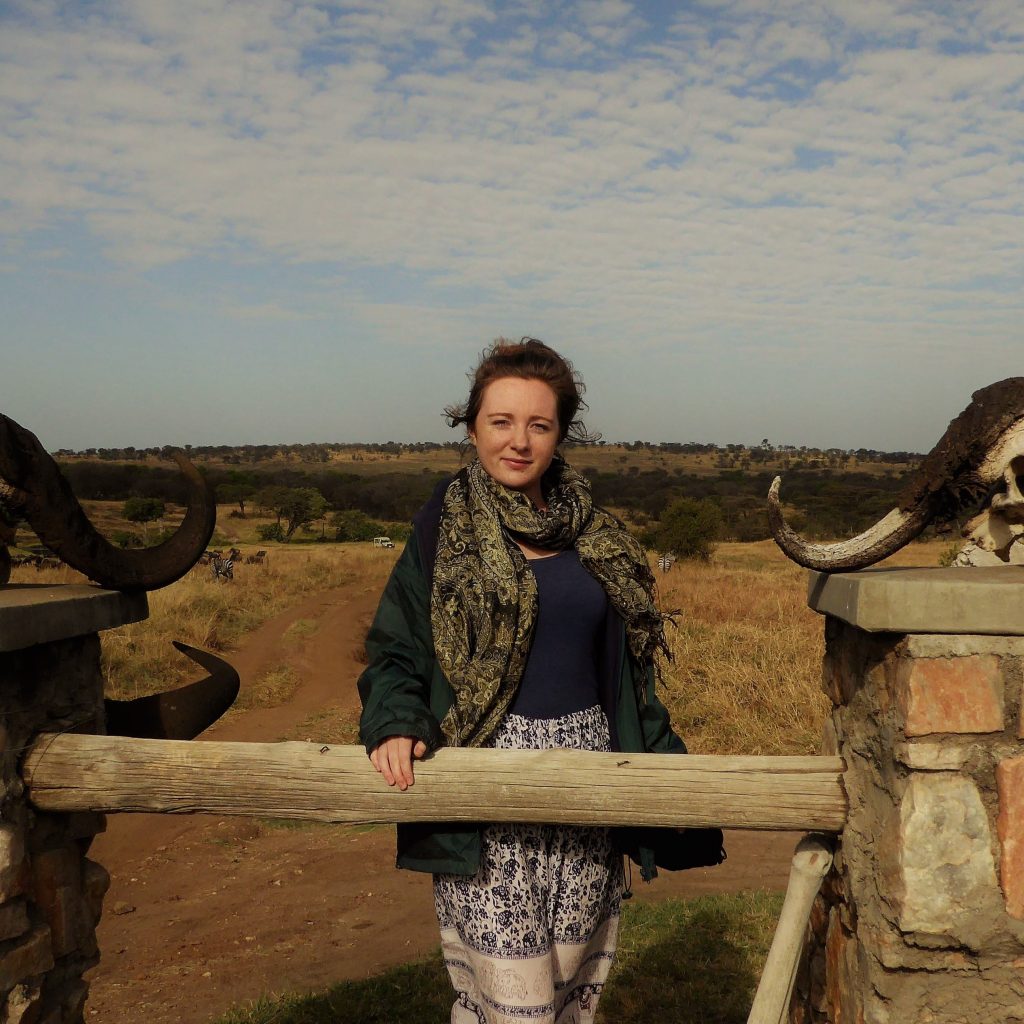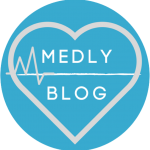On 13th March 2018, the annual WIRED Health conference was hosted at the Francis Crick Institute in London, and attending this event allowed me a glimpse of how different the future of Medicine could be. The diversity of the topics the speakers had been researching to advance healthcare was astounding: from the development of anti-ageing drugs, to streaming surgeries via Snapchat, to using microbes to modify mental health. Many people, both doctors and patients, are wary of the integration of new forms of technology into healthcare, with headlines heralding the new age of robot doctors, but this conference showed how people and computers can work together to reduce the strain on the healthcare system both in the UK and worldwide.

The NHS is close to breaking point: it seems there are new stories every week about the staffing crisis, the lack of beds and the ever-increasing population of ill patients that face our health service every day. The projects these pioneers have been working on have not only improved medicine as a whole, but improved patient’s quality of life both during and after medical intervention. The first talk of the day perfectly encapsulated this. Entitled ‘treating untreatable cancers with gene therapy’, it explored the development and use of synthetic immune cells to attack advanced cancer cells. A comparison of this treatment versus previous management demonstrates the huge impact this could have. During previous management, patients received chemotherapy for 6 years, however, with this treatment, they have 4 days of chemotherapy, 136 appointments are reduced to less than twenty, the amount of surgeries needed is halved, only 3 spinal taps are required compared to the previous 40, and the patient takes less than 200 pills – thousands less than previously. The benefits are clear – the patient’s quality of life may be increased dramatically and innumerable resources could be saved.
Another lecture that resonated with the audience centred around a new treatment for mental health disorders. Mental illness is one of the main causes of the overall disease burden worldwide. It is a major cause of life years lost to disability and costs billions of pounds every year. Patients are frequently on numerous medications for long periods of time. Today, Robin Carhart-Harris, Head of psychedelic Research at Imperial College London, introduced his research: the effect of psilocybin on patients with depression in whom conventional treatment had failed. Psilocybin? The psychoactive compound that naturally occurs in magic mushrooms. Not only did the patients who received this treatment show reduced symptoms, but MRI scans showed the neuroplasticity of the brain was changed – in essence, this treatment ‘resets the mind’. Again, this advancement has the potential to save lives and reduce the burden on healthcare resources, but also emphasises how substances we have previously deemed unsuitable or unsuccessful in the pursuit of health could actually provide a cure. Improving healthcare may not always require novel inventions; sometimes a different view of the world already around us provides the answer we have desperately been searching for.
It is not only the UK that faces strain on their healthcare system. As Claire Novorol, Founder of Ada Health, pointed out in her talk “The AI doctor”, hospital doctors in India and China spend an average of two minutes per patient. In Pakistan, it’s 1.3 minutes. In Bangladesh, a doctor can spare a mere 43 seconds per patient. These are only the patients who can make their own way to a hospital and afford to stand in the endless queues just to receive medical aid. There are millions of patients who have no access to healthcare. The theme of healthcare in the developing world was maintained by Andrew Bastawrous, Eye Surgeon and founder of the ophthalmic technology ‘Peek’, who explained in his talk “How the smartphone can provide eyecare for all”, that the World Health Organisation (WHO) estimates 36 million people worldwide are blind, yet 80% of vision impairment can be prevented or cured. However, it’s not that simple. Andrew talked about communities in developing countries who live miles not just from the nearest healthcare centre, but from the nearest road. He spoke of the people who can’t afford to take time from their work to receive medical attention, and the many more who simply accept their eyesight is failing and that nothing can be done. However, Andrew and his team at Peek have developed simple smartphone technology, that can be used by anyone, anywhere, to conduct large-scale vision screening in schools and communities. The patients requiring specialist review can be identified rapidly and reliably, and referred on to the appropriate service; a project aiming to save the sight of millions.
Another interesting talk was given by Romain Pizzi, who specialises in keyhole surgery performed on animals all over the globe. Despite being a veterinary surgeon, it was easy to see how Romain’s innovations could be translated for use in human medicine. Because of the conditions he works in, he often needs to come up with inventive solutions to problems that would not occur in the UK. He uses hand warmers to heat surgical cameras to prevent condensation forming on them whilst inside an animal – performing the function of a machine that costs the NHS thousands. He developed a device that can blow air into a body cavity or act as a suction pump from a mattress pump and soda bottle. He used ultrasound and creative thinking to perform brain surgery on a bear in a country that doesn’t even have an MRI scanner. Romain also repurposes a lot of the equipment that can no longer be used in the UK, such as out-of-date medical apparatus or technology he has bought off eBay. If we apply this type of divergent thinking to healthcare around the world, we can start to tackle the burden of healthcare worldwide with increasingly limited resources.
The final theme I felt was impressed upon us during these talks was the long-awaited end of the paternalistic system of medicine. With the wealth of information available at our fingertips, patients often turn to the internet to attempt to diagnose themselves. This currently may be disadvantageous to the patient’s health – search for headache, you may have a brain aneurysm; search for vomiting, you may have intestinal obstruction; and suddenly, feeling faint, short of breath and extremely anxious are more symptoms to search for. However, if this knowledge can be utilised in the right manner, as Claire Novorol described with Ada, a “personal health companion and telemedicine app”, patients can be empowered to take control and make informed decisions about their own health. This should not be a hindrance to doctors; instead it aims to work with doctors to try and prevent unnecessary appointments and offer a differential diagnosis that the doctor may not have considered.
In conclusion, the main points I took away from WIRED Health 2018 are as follows. Firstly, people should not fear the advancement of technology; instead they should work together to help ease the burden of disease. Furthermore, the progress we make in the developed world needs to be applied to those in less fortunate areas; likewise there is something for us to learn from those who work in developing countries, innovating with limited resources. We are also moving away from the paternalistic model of Medicine; with access to an ever-increasing wealth of knowledge, people now more than ever are empowered to help themselves in their road to recovery. Finally, I would like to commend the immense amount of patience and dedication these speakers had. Many people had started these projects before I was born, proving that although it takes a huge amount of time, money and effort to change the world, it can be done.
~~~~~~~~~~~~~~~~~~~

Saoirse Gibson is a final year medical student at HYMS. She recently completed her elective in Tanzania, where she undertook placements in Obstetrics and minor theatre, as well as going on safari in the Serengeti and scuba diving off the coast of Zanzibar. In the future, she hopes to travel and work abroad, especially in less developed countries where medical access is limited.

